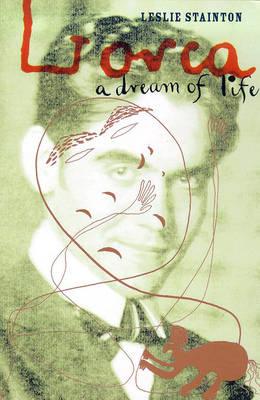Full Product Details
Author: Leslie Stainton
Publisher: Bloomsbury Publishing PLC
Imprint: Bloomsbury Publishing PLC
Edition: New edition
Dimensions:
Width: 15.20cm
, Height: 4.60cm
, Length: 23.40cm
Weight: 0.890kg
ISBN: 9780747544456
ISBN 10: 074754445
Pages: 576
Publication Date: 20 October 1999
Audience:
General/trade
,
Professional and scholarly
,
General
,
Professional & Vocational
Format: Paperback
Publisher's Status: Active
Availability: Temporarily unavailable

The supplier advises that this item is temporarily unavailable. It will be ordered for you and placed on backorder. Once it does come back in stock, we will ship it out to you.
Reviews
A meticulously crafted, elegantly recounted biography of the renowned Spanish poet and playwright. Born in 1898, Federico Garcia Lorca came of age during the great flowering of Spanish modernism that produced such notables, and friends, as Salvador Dali and Luis Bunuel, and, arguably, led to the Spanish Civil War. Lorca's father, a wealthy Andalusian landowner, usually indulged and funded his son's poetic and dramatic aspirations, paying for the printing of his first two books and financing his first play. These efforts attracted some positive critical attention yet were financial disasters. Lorca largely shrugged them off: fortunately I don't have to make a living from my pen. If I did, I wouldn't be so happy. He had the brash self-confidence of genius, and though his parents insisted he get a law degree, he refused to settle down into a quiet, quotidian existence. He had enormous energy, organizing folk-song festivals, writing puppet shows, giving lectures. Slowly but definitively, he became a major cultural phenomenon. His plays made some money, his poetry books went into second editions. However, it was two trips abroad, to New York City and Buenos Aires, that secured Lorca's reputation and allowed him to find his full poetic voice. Although he still wrote the occasional poem, he began to turn increasingly to poetic drama, creating such classics as Blood Wedding. He also began to come to terms with his homosexuality, in both his an and life. Despite being essentially apolitical, in Spain's heated political climate, Lorca was strongly identified with the Republican left. It is a tragic testament to the power of his work that in the early days of the Spanish Civil War, he was arrested and executed. He was only 38. Stainton, who has written widely for scholarly journals and other publications, has done a remarkable job of capturing the rich fullness of Lorca's short, brilliant life. (Kirkus Reviews)
The Andalusian-born dramatist and poet Federico Garcia Lorca who grew up during World War I, hated war and the nationalistic sentiments that accompanied it. Appalled by what he called 'a century of Zeppelins and stupid death', Lorca found inspiration in Spanish folk traditions. Moving among contemporaries who included the filmmaker Luis Bunuel, the artist Salvador Dal' and hte composer Manuel de Falla, Lorca's artistic vision was enriched by Hispanic modernism, which reacted against the conventions of bourgeois society. When the Falangist who arrested Lorca during the Spanish Civil War was asked what crime he had committed, the answer was 'He's done more damage with a pen than others have with a pistol'. Days later, Lorca was shot at dawn. His friend, the Chilean poet Pablo Neruda, observed that by sacrificing Lorca, his enemies had killed 'the essence of Spain, its vitality and profoundity'. Stainton's meticulous and sympathetic biography focuses on Lorca's timely contribution to Spanish culture, while also illuminating his life, and his struggle to coem to terms with his homosexuality. (Kirkus UK)



